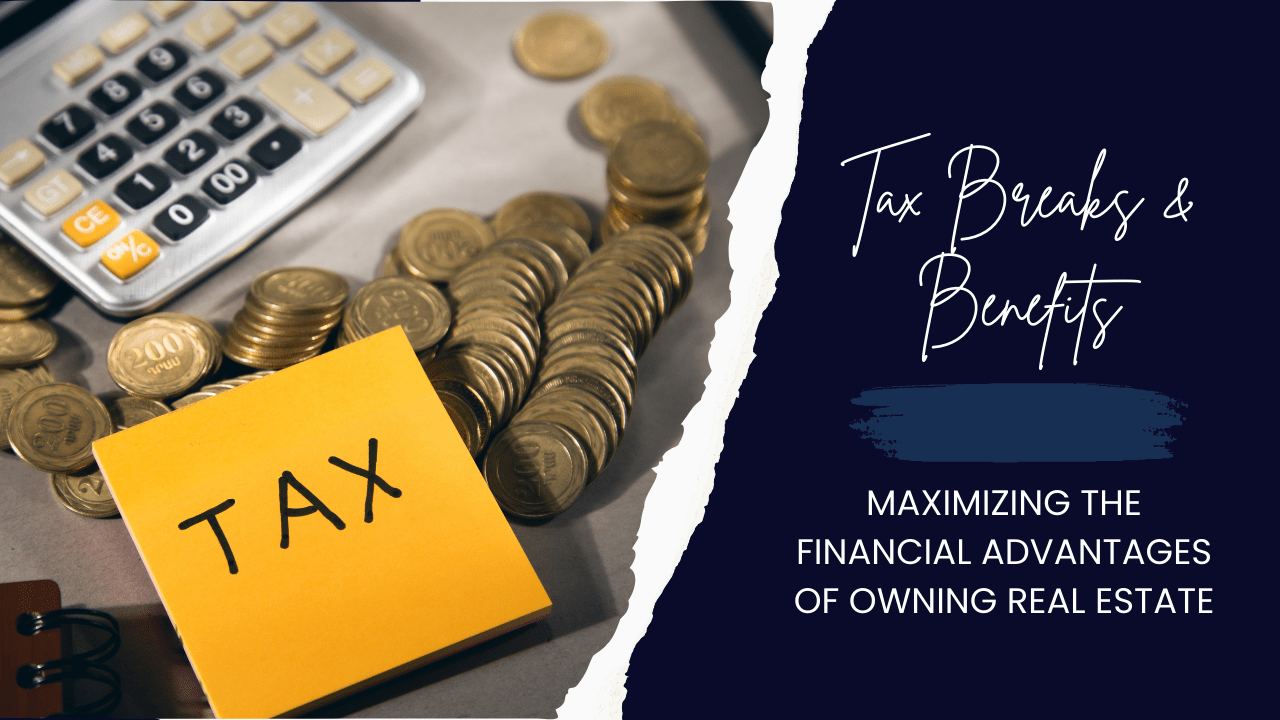You might not feel great about paying taxes, but for real estate investors in California, there’s plenty of good news when we’re talking about tax liability and deductions. Owning residential real estate is not only lucrative in the way that it provides consistent and recurring income as well as long-term appreciation, but also because you can take advantage of several tax rules that work in your favor as a real estate investor.
Yes, you’ll have to declare all of your rental income as income and prepare to have it taxed.
However, when you understand how to leverage tax breaks and benefits, you can find you’re paying less than you expected. For real estate investors, navigating the complexities of rental property tax benefits and effective property management can significantly enhance financial gains, and that’s why we’re here today; to help you think through your tax breaks and benefits, and to make sure you’re taking them all.
At Bell Properties, we’ve been working with investors and rental property owners in California for years. We’re not a CPA firm nor are we accounting experts, and we recommend you talk to your tax professional about this topic. The information we’re sharing today is based on our expertise in the rental market.
Mortgage Interest Deduction
One of the most significant tax breaks for property owners is the mortgage interest deduction. This allows you to deduct the interest paid on your mortgage, reducing your taxable income. This can be particularly beneficial for new investors with large mortgage payments.
How can you access this benefit? It starts with accurate record-keeping. Make sure to keep detailed records of all mortgage payments, including the interest portion. This includes obtaining Form 1098 from your lender, which details the amount of interest paid over the year. If you own both personal and rental properties, it’s essential to keep expenses separate. Only the interest paid on loans for rental properties is deductible, so ensure your financial records accurately reflect this.
Refinancing may be a good idea in the future, and you’ll be happy to know you can also deduct the interest paid on a refinanced loan.
Depreciation and LA Rental Properties
Depreciation is a non-cash deduction that allows you to recover the cost of your rental property over time. The IRS lets you depreciate the value of the property (excluding land) over 27.5 years, providing a substantial annual tax deduction. This can significantly reduce your taxable rental income.
Depreciation matters to investors at tax time because it lowers the taxable income that’s reported, which means you’ll owe less. This puts more cash in your hands, which can be used to reinvest into other properties or even improvements on your rentals. This is a long-term strategy that can benefit you for several years while you’re renting out a home.
Your tax professional can help you calculate the depreciation you’ll take on your taxes, but here’s some quick math to show you how it’s done:
Determine the Basis of Your Property:
This is generally the cost of the property plus any expenses related to its purchase, such as closing costs and legal fees.
Subtract the Land Value:
Land cannot be depreciated, so you'll need to determine the value of the land separately and subtract it from the total basis.
Divide by 27.5 Years:
The resulting number is your annual depreciation deduction.
Leveraging depreciation when filing taxes can provide substantial financial benefits for rental property investors in California.
Property Taxes and Operating Expenses
You can deduct property taxes and operating expenses related to your rental property. This includes costs for maintenance, repairs, utilities, insurance, and even property management fees. These deductions can quickly add up, lowering your overall tax liability.
The first step in deducting operating expenses is to maintain comprehensive records of all transactions related to your rental property. Use accounting software or spreadsheets to track your income and expenses. Keep all receipts, invoices, and bank statements. As you may have noticed, excellent documentation is a common theme when we’re talking about anything related to taxes.
You’ll also need to understand which expenses are deductible. Not every expense is eligible to be considered, so it’s crucial to understand what qualifies. The IRS provides guidelines on deductible expenses, which typically include the items such as management fees, insurance premiums, and advertising costs. Always consult the IRS guidelines or a tax professional to ensure compliance.
Passive Activity Losses
If your rental property operates at a loss, you may be able to deduct those losses against other income, subject to certain limits. This can provide a valuable safety net, especially for new investors who might not see immediate profits.
Tips for Maximizing Returns
Now that we know benefits and deductions are available, how do you capture them while filing your taxes, and what steps can you take to ensure you’re in compliance with the IRS? Your tax professional, of course, can help you, but here are some of our best tips for maximizing those returns.
Deduct Operating Expenses: Ensure you are deducting all permissible operating expenses related to your rental property. These can include property repairs, maintenance, advertising for tenants, and property management fees. Don’t forget that property improvements are different from repairs and cannot be deducted in this way.
Depreciation: Take advantage of property depreciation deductions. By depreciating the cost of the property, excluding the land, you can significantly lower your taxable income each year. You have the formula, and as long as you’ve classified your property correctly, you can save a lot of tax dollars with this benefit.
Interest Deductions: Deduct mortgage interest payments. This can be one of the largest deductions available to property owners, potentially saving you thousands of dollars annually.
1031 Exchange: Consider a 1031 exchange to defer capital gains taxes when you sell a rental property and reinvest the proceeds in a similar property. This can help you maximize the proceeds from property sales without immediate tax implications.
Home Office Deduction: If you manage your rental property from a home office, you may be eligible for a home office deduction, which can cover a portion of your household expenses such as utilities and mortgage interest. Track the amount of space you take up and the cost that comes with home office maintenance.
Legal and Professional Fees: Deduct any legal and professional fees related to your rental property. This can include real estate attorney fees, accountant fees, and other professional services necessary for managing your property.
By conscientiously applying these tips, you can optimize your rental property investments, thereby maximizing your financial returns and securing a more prosperous future in real estate.
Another Tax Benefit for Investors: 1031 Exchanges
We briefly mentioned this above while providing a list of ways to maximize your tax savings. It’s an under-utilized program that can actually provide a lot of benefits for rental property owners in a market as pricey as California.
A 1031 exchange allows you to defer paying capital gains taxes when you sell one investment property and purchase another like-kind property within a specific timeframe. This strategy can be incredibly powerful for growing your real estate portfolio while deferring tax liabilities.
While the primary benefit is the ability to defer capital gains taxes, potentially saving thousands of dollars, investors also enjoy diversifying their portfolios by exchanging properties. Also, a larger portion of your gains can be reinvested into properties, accelerating your portfolio growth.
Here’s how to make the 1031 exchange work for you:
Engage a qualified intermediary (QI) and other professionals such as real estate agents, attorneys, and tax advisors experienced in 1031 exchanges. The QI will facilitate the exchange process, ensuring compliance with IRS regulations.
Sell the Relinquished Property. Start by selling the property you currently own. The proceeds from the sale must be held by the QI until they are used to purchase the replacement property. You cannot take possession of these funds at any point during the exchange.
Identify Replacement Properties. You have 45 days from the sale of your relinquished property to identify up to three potential replacement properties. The properties must be like-kind, meaning they are of the same nature or character, even if they differ in quality or grade.
Complete the Purchase. Within 180 days from the sale of your original property, you must close on the purchase of one or more of the identified replacement properties. This timeline includes the initial 45-day identification period.
Work closely with your QI and tax advisor to ensure all necessary paperwork is correctly filed. The IRS requires specific forms and documentation to approve the exchange and grant tax deferral status.
 Owning rental properties offers numerous tax benefits and financial advantages, and when you’re informed and proactive, you can keep a lot more of the money you earn on your California investment properties.
Owning rental properties offers numerous tax benefits and financial advantages, and when you’re informed and proactive, you can keep a lot more of the money you earn on your California investment properties.
We would be happy to talk more about this topic or any topic pertaining to your California investment properties. Please contact us at Bell Properties.


